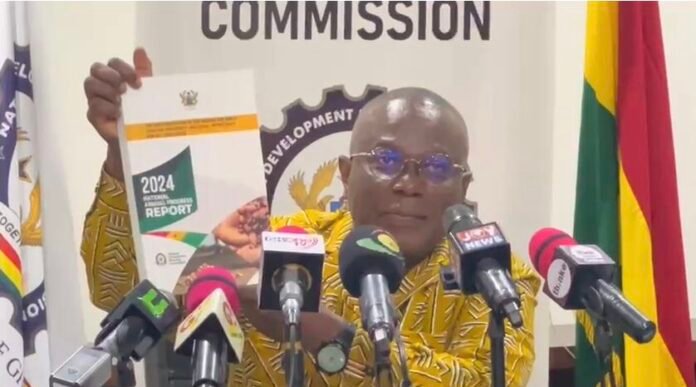A new report by the National Development Planning Commission (NDPC) has revealed that Ghana continues to lose value for money in public infrastructure spending due to massive cost overruns, project delays, and poor execution across key government sectors.
According to the 2024 Annual Progress Report, several capital projects implemented by Ministries, Departments, and Agencies (MDAs) have exceeded their completion timelines by several years, with costs escalating far beyond initial budgets.
The NDPC found that total contract costs for 17,993 capital projects rose from GH¢434.8 billion to GH¢505.1 billion, representing an overrun of GH¢70.3 billion. The report attributes these overruns to low GDP growth, high inflation, and exchange rate volatility, which have driven up project costs and delayed implementation.
The Ministry of Roads and Highways accounted for more than half of all ongoing projects, managing 9,616 road projects at various stages of completion.
“Most investment initiatives recorded substantial time overruns, exceeding their planned duration by many years,” the report stated.
“Macroeconomic risks, including rising inflation and volatile exchange rates, made projects more costly to complete.”
The Ministry of Works and Housing, Ministry of Defence, and Ministry of Energy were also identified among agencies with significant cost escalations. Notably, the Ministry of Defence’s project costs reportedly increased from GH¢8 billion to GH¢55.6 billion in 2024 — a more than sixfold rise.
Despite government efforts to enhance project monitoring and coordination, execution challenges persist. The report noted that Metropolitan, Municipal, and District Assemblies (MMDAs) implemented 89.6% of their annual action plans but fully completed only 73.4% of planned activities.
The Commission warned that continued delays and cost overruns not only waste public resources but also undermine socio-economic development goals. It urged stronger enforcement of project timelines, transparent procurement practices, and better financial planning to ensure development initiatives deliver real value to citizens.
Source:Africa Publicity








